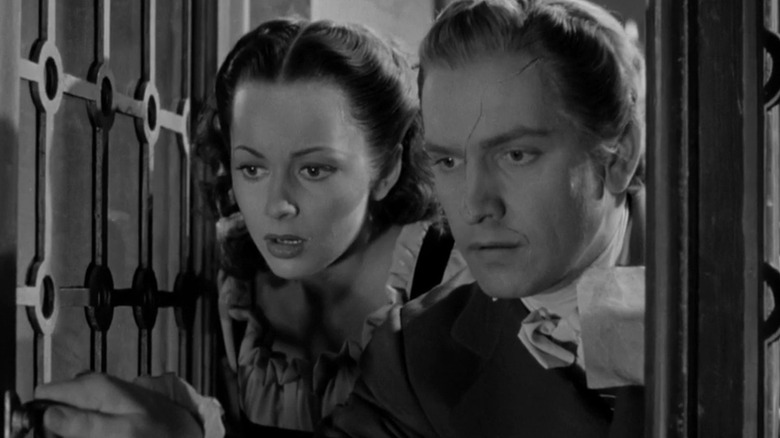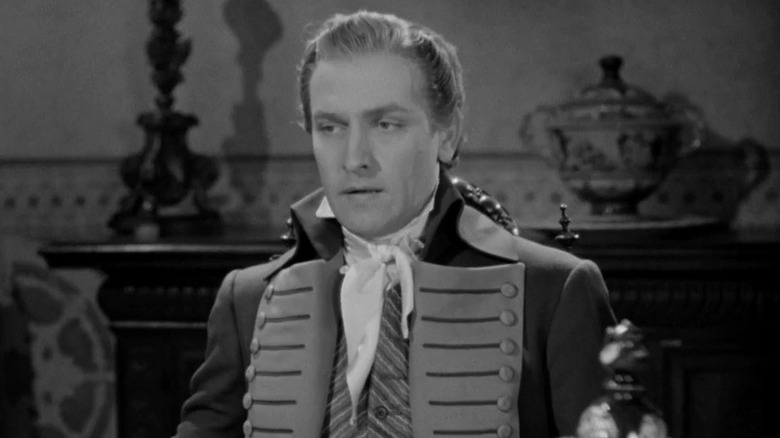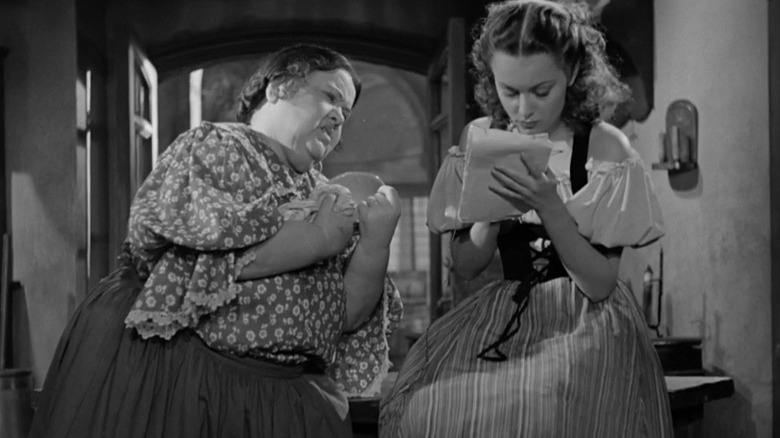
The Best Picture Oscar nominees of 1936 contained a few stone-cold classics and a large handful of duds. The Academy nominated 10 films for Best Picture that year, with the top honor going to Robert Z. Leonard’s three-hour glitzy musical biopic “The Great Ziegfeld” (a film about noted musical theater impresario Florenz “Flo” Ziegfeld, Jr., as played by William Powell). “The Great Ziegfeld” is visually spectacular but kind of mushy as a melodrama, serving more as a fond farewell to its subject (who died in 1932) than a legitimately great film.
The legit bangers nominated that year included Frank Capra’s “Mr. Deeds Goes to Town,” one of the master director’s more notable comedies. Also pretty good were William Dieterle’s “The Story of Lois Pasteur” starring Paul Muni, and Jack Conway’s delightful screwball film “Libeled Lady” with Powell and Myrna Loy. Conway also directed a serviceable adaptation of “A Tale of Two Cities,” which many readers may have watched in their junior high school classrooms.
But 1936 also had a lot of stinkers at the Oscars. One might think that George Cukor directing a production of “Romeo and Juliet” would go over well, but leads Leslie Howard and Norma Shearer were too old to play the star-crossed lovers, and the director was a little too fond of Andy Devine (!) as a random servant named Peter. Henry Koster’s “Three Smart Girls” is fine, but it’s hardly extraordinary, and the disaster epic “San Francisco” doesn’t really start to get lively until the 1906 earthquake strikes at the end of the movie.
At the bottom of the barrel, at least critically, were William Wyler’s ultra-dull captain-of-industry drama “Dodsworth” and Mervyn LeRoy’s historical epic “Anthony Adverse.” The latter also has the dubious honor of being the lowest-approved Best Picture nominee on Rotten Tomatoes, with a rating of only 18%.
Anthony Adverse has a very low rating on Rotten Tomatoes
Based on the 1933 novel by Hervey Allen, “Anthony Adverse” begins in 1773 when the titular character was born. Being the result of an affair between his married mother and her dashing lover, Anthony was raised in a convent after his mother’s husband, a Spanish marquis, insisted the infant Anthony be stricken from the family. By utter coincidence, when Anthony is 10 years old, he begins serving as an apprentice to his biological mother’s father, not knowing they are related. Luckily, the grandfather is sharp enough to put it all together. It’s all very Dickensian (a la “David Copperfield”).
The bulk of the film follows Anthony as a young man, played by Fredric March. He falls in love with Angela (Olivia de Havilland), the daughter of his grandfather’s live-in cook. They are separated for a long while, and she becomes an opera singer. They are briefly reunited a few years later, but circumstances keep them apart. Anthony only has one recourse … and here’s where the film becomes icky: he becomes the manager of the family slavery trading post on the Pongo River in Africa.
“Anthony Adverse” continues apace from there, with more international treks and the predictable, eventual reunion between Anthony and Angela. More lovers are taken, more children are born, and no one is impressed.
There are only 11 reviews of “Anthony Adverse” on Rotten Tomatoes, but most of them are negative. In a vintage review from the New Republic, critic Otis Ferguson cynically ponders that the effort that went into making the film wasn’t balanced by any entertainment value. It had “No life, no flow of story. It tries to dramatize as many of the book’s episodes as possible; but in the dramatizing, there is shown no relish or conviction.”
Critics were harsh, even 88 years ago.
Anthony Adverse received negative reviews when it came out, too
A vintage review from Esquire Magazine, written by Patterson Murphy, agreed with Ferguson’s review that “Anthony Adverse” was nice to look at, and that the costumes and production were sumptuous, but that the storytelling was dull. “There is an on-your-toes, give-your-best, you’re-in-a-classic-now atmosphere about the acting which is fascinating,” Murphy wrote.
Frank S. Nugent of the New York Times was familiar with the original “Anthony Adverse” novel, and was miffed that the film adaptation altered a lot of the source material. Nugent was even angrier, however, that the tone of the book was missed. “We found it a bulky, rambling and indecisive photoplay,” he wrote, “which has not merely taken liberties with the letter of the original but with its spirit.”
Having seen “Anthony Adverse,” I can chime in with how boring it is. Rather than capturing the excitement of growing up, the struggles of the wealthy, or taking any viewpoint at all on slavery, LeRoy’s film simply lays flat, dictating events to an audience rather than telling an intriguing story. It’s also a pity that Olivia de Havilland isn’t in more of the film, as she has far more life and energy than any of the other players. Overall, “Anthony” feels like, well, Oscar bait. It’s an over-long historical epic, clearly made for a lot of money, based on a hit novel, and starring established Hollywood players. One can almost sense the cynicism of the entire affair, knowing that some executive at Warner Bros. knew this film would get them awards attention. No one, it seems, had any sort of passion for the material.
Watch “Mr. Deeds Goes to Town” instead. Or “A Tale of Two Cities.” They’re better movies.




Leave a Reply